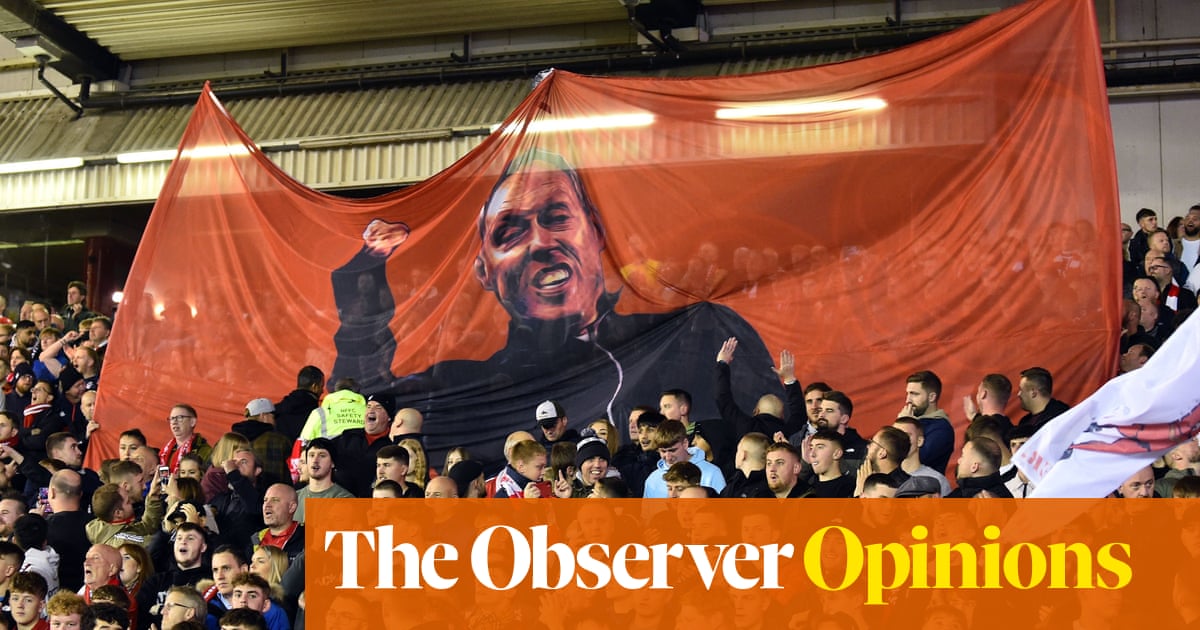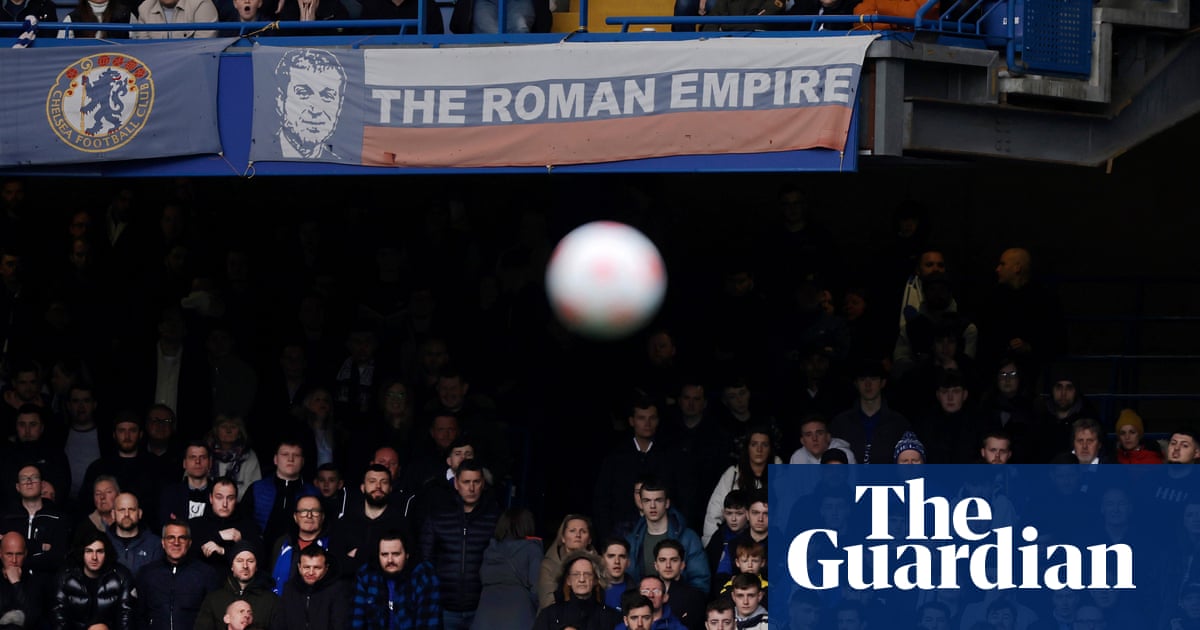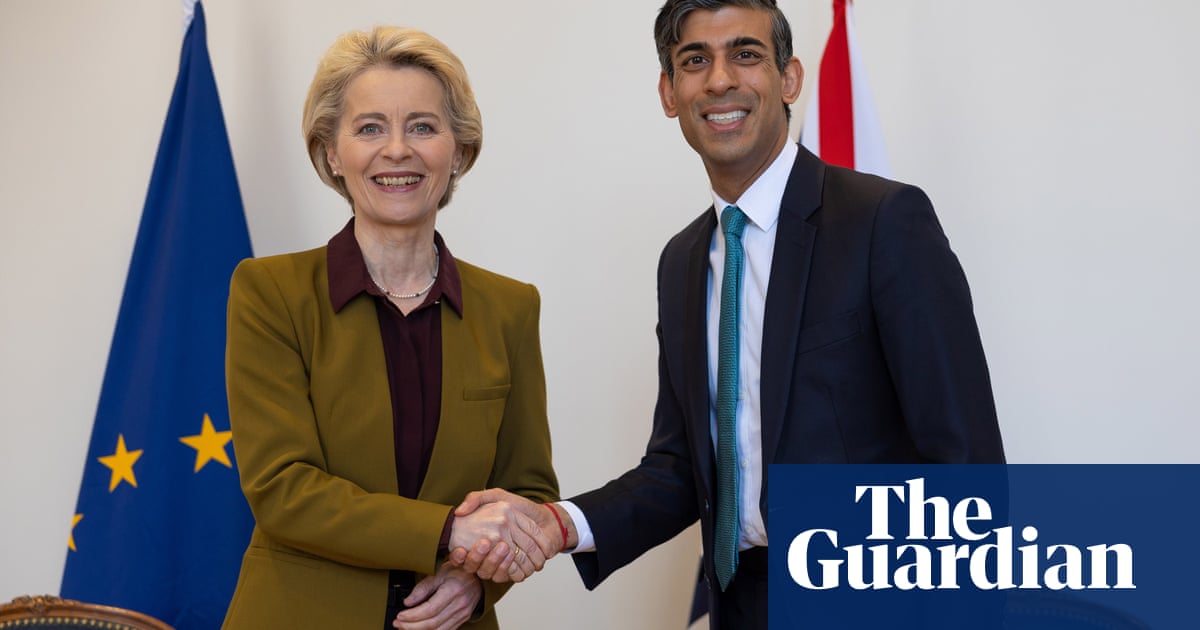
It will be no surprise if Chelsea executives approach the double doors leading into the Riverside Stadium’s boardroom with an element of trepidation on Saturday evening.
Whoever among the Stamford Bridge hierarchy imagined that it might be a good idea to pick a fight with Steve Gibson this week swiftly learned a harsh lesson as, quite justifiably, Middlesbrough’s famously feisty owner raked his metaphorical studs down their shins.
With sanctions imposed on Chelsea’s outgoing owner, Roman Abramovich, by the UK government dictating they can no longer sell match tickets, the London club demanded that Saturday’s FA Cup quarter-final on Teesside be played behind closed doors for “reasons of sporting integrity”.
Shortly after Gibson had declared that, among several other things, Bruce Buck, Chelsea’s chairman “lacked intellect” and the London club were “rotten to the core”, the demand was dropped. Accordingly the Riverside will be filled to near-35,000 capacity with about 700 seats occupied by those away fans who bought tickets before the imposition of sanctions on a Russian owner with ties to Vladimir Putin. All ticket receipts will be donated to Ukrainian war victims and related charities.
“I agree with the sanctions and I think our club handled that nonsense magnificently well,” said an approving Chris Wilder on Friday as he prepared to pit his promotion-chasing Championship side against the European champions. “Steve, in his honest, blunt and forthright manner said it how it was.”
By kick-off Gibson’s mood may have mellowed with his thoughts turning to recollections of a watershed Saturday afternoon in late August 1995 when the newly built Riverside staged its first game.
Thanks to goals from Craig Hignett and Jan Åge Fjørtoft, Bryan Robson’s team won 2-0. A Chelsea side managed by Glenn Hoddle and featuring Ruud Gullit at sweeper had hoped to brush aside recently promoted opponents, but that defeat rather set the tone for a somewhat mediocre season in which they finished 11th in the Premier League, one place ahead of Boro.
Given history’s habit of repeating itself, Chelsea fans may be disinclined to recall that football’s spotlight was then dominated by a Newcastle team revitalised by Sir John Hall’s takeover and Kevin Keegan’s inspirational management.
Newcastle would eventually allow the title to slip from their grasp and finish second behind Manchester United but, 26 years on, a Saudi Arabian-led buyout has transformed them into potentially the world’s wealthiest club.
No one knows whether a new Chelsea ownership faced with the prospective challenge of reconstructing or replacing Stamford Bridge will be able, or even inclined, to take on an ascendant Newcastle, let alone Manchester City, Liverpool et al, in the transfer market.
Moreover, despite Thomas Tuchel’s repeated protestations of happiness in west London it would not be a huge shock were the German to defect to Manchester United this summer.
By then Wilder hopes Boro will be back in the Premier League. As part of his preparation for Saturday’s tie, the former Sheffield United manager watched Chelsea beat Newcastle 1-0 last Sunday and he departed Stamford Bridge determined to return on a league assignment with his players next season.
“It brought back some really good memories and hammered home that it’s where we really want to be,” said Wilder. “It’s a special division the majority of the world’s best managers and players want to be part of.”
Significantly Gibson represents a big reason why England’s top tier has become so enticing to so many. In 1995 when the then Chelsea owner, Ken Bates, became distracted by disagreements with his vice-chairman, Matthew Harding, Gibson was busy plotting to make his club as global as his international chemical distribution business, Bulkhaul.
That August, Fjørtoft, Gullit and Chelsea’s Russian goalkeeper Dmitri Kharine – now coaching at non-league Hemel Hempstead – were the only non-British and non-Irish players on view at the Riverside but two months later the Premier League’s topography shifted when Gibson secured Juninho’s £5m signing.
As Boro officials talked the Brazil attacking midfielder out of an initial desire to live next door to that Aladdin’s cave otherwise known as Marks & Spencer in the town centre, Gibson and Robson spearheaded a revolution destined eventually to draw, among others, Abramovich and Saudi Arabia’s Public Investment Fund to the Premier League.
As Chelsea fans continued to mourn Harding’s death in a helicopter crash, the Italy striker Fabrizio Ravanelli arrived on Teesside from Juventus for £7m at the start of the 1996-97 season.
When he scored a hat-trick against Liverpool on his debut it became clear precisely why Boro had elected to spend £40,000 a week on making him the best-paid player in Premier League history.
With the Brazilian midfielder Emerson and Italian defender Gianluca Festa signing from Porto and Internazionale respectively that longstanding Boro footballers Mecca, the Tall Trees nightclub in the nearby Georgian market town of Yarm, assumed a newly exotic vibe.
Similar glamour swiftly spread south, enveloping Stamford Bridge. With Hoddle departing to coach England, Gullit became Chelsea’s manager in the summer of 1996 and wasted no time in recruiting Gianfranco Zola, Ginalucca Vialli, Roberto Di Matteo and Frank Leboeuf. The following May, the Dutchman led Chelsea to their first trophy success in 26 years: a 2-0 FA Cup win against soon-to-be-relegated Boro.
Wilder, after beating Manchester United and Tottenham in earlier rounds, hopes to ensure Chelsea do not reach Wembley and seems slightly disappointed an increase in their government-controlled travel allowance means they journeyed to Teesside by air rather than road.
“From my viewpoint there’s not a lot of sympathy towards Thomas and the players,” said Boro’s manager. “But I don’t think there’s an incredible amount of sympathy for them anywhere in football.”











